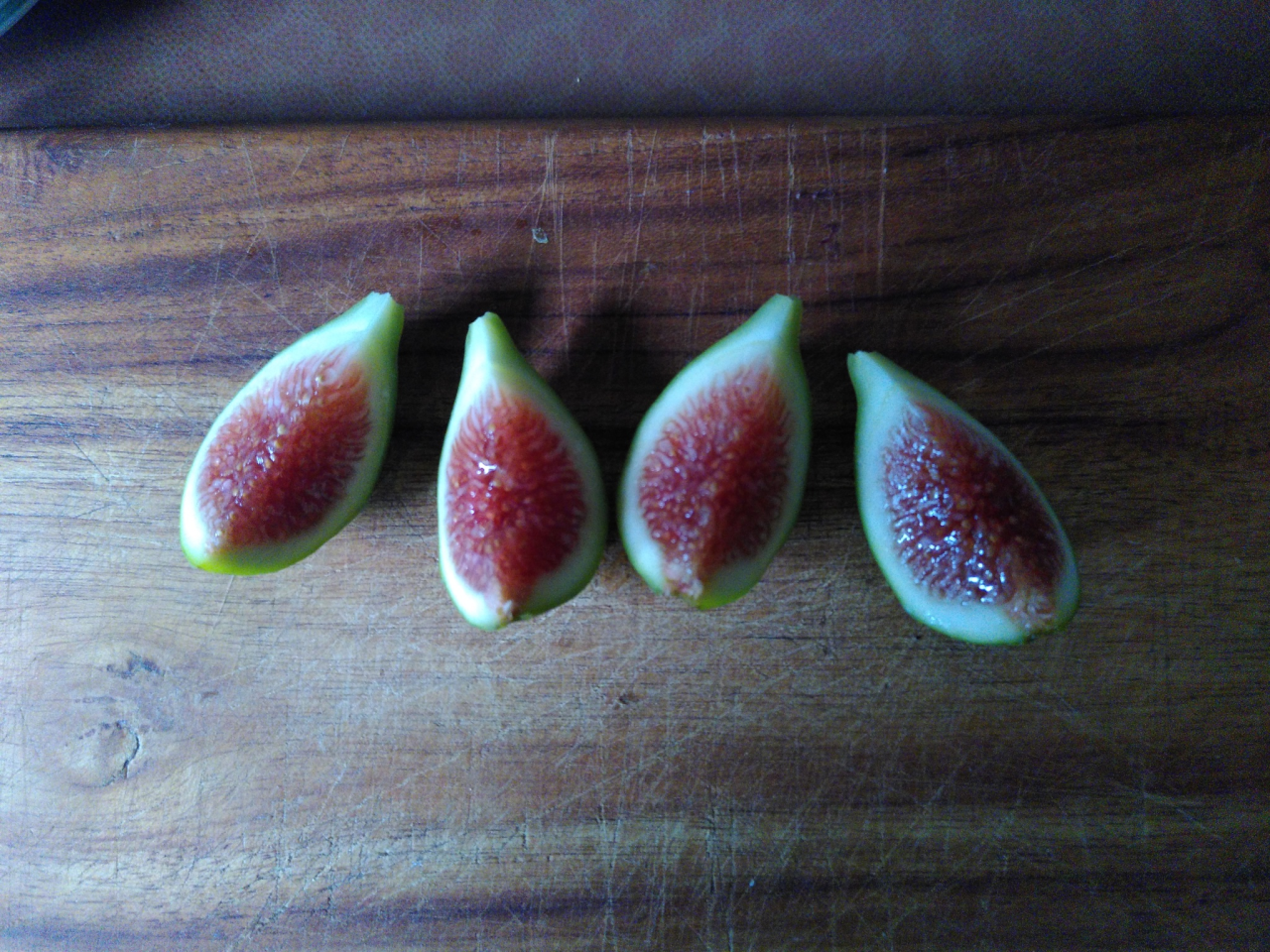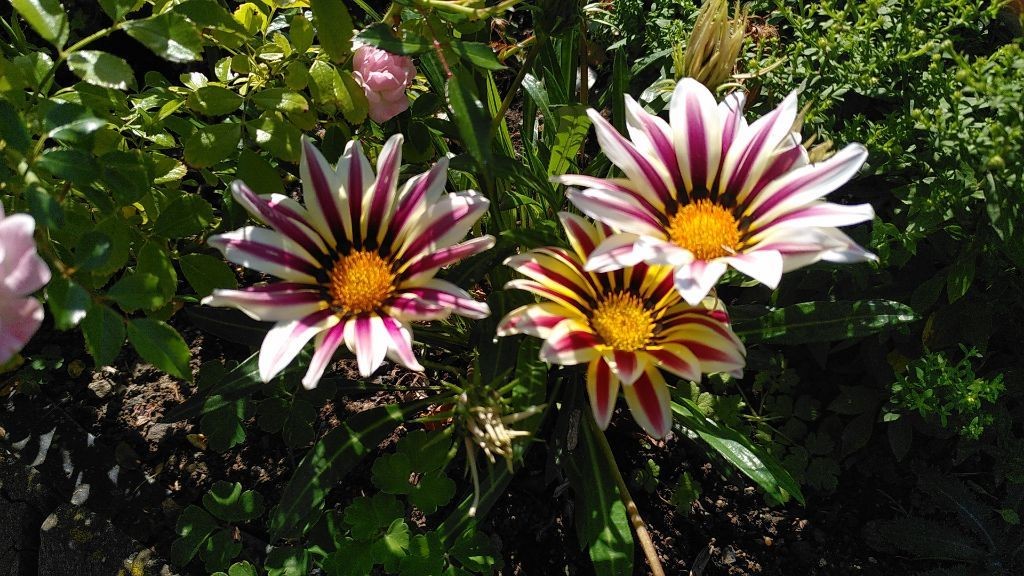The weather has been weird for a good while here now, with autumns so long and so mild that the rose in our garden is regularly going for a last flowering in October/November. So I figured that we'd might as well make the most out of global warming, and planted a fig bush three years ago. It's hardy enough to survive the winters here, though it has to be protected against late frosts, because it will otherwise just go pouty and mope around and not grow leaves forever (or until it is pruned back a bit again).
This year is the first time that it actually made figs that managed to ripen, though! Last year it put out about two fruits, and those were a complete disappointment. But this time around, they are actually nice.
They are not very large, but (since the Most Patient Husband of Them All is not as fond of them as I am), they are all mine :)
Next one up to make fruits will be the passionfruit plants and the fig cactus. Though the latter might still need a year or two to grow...






